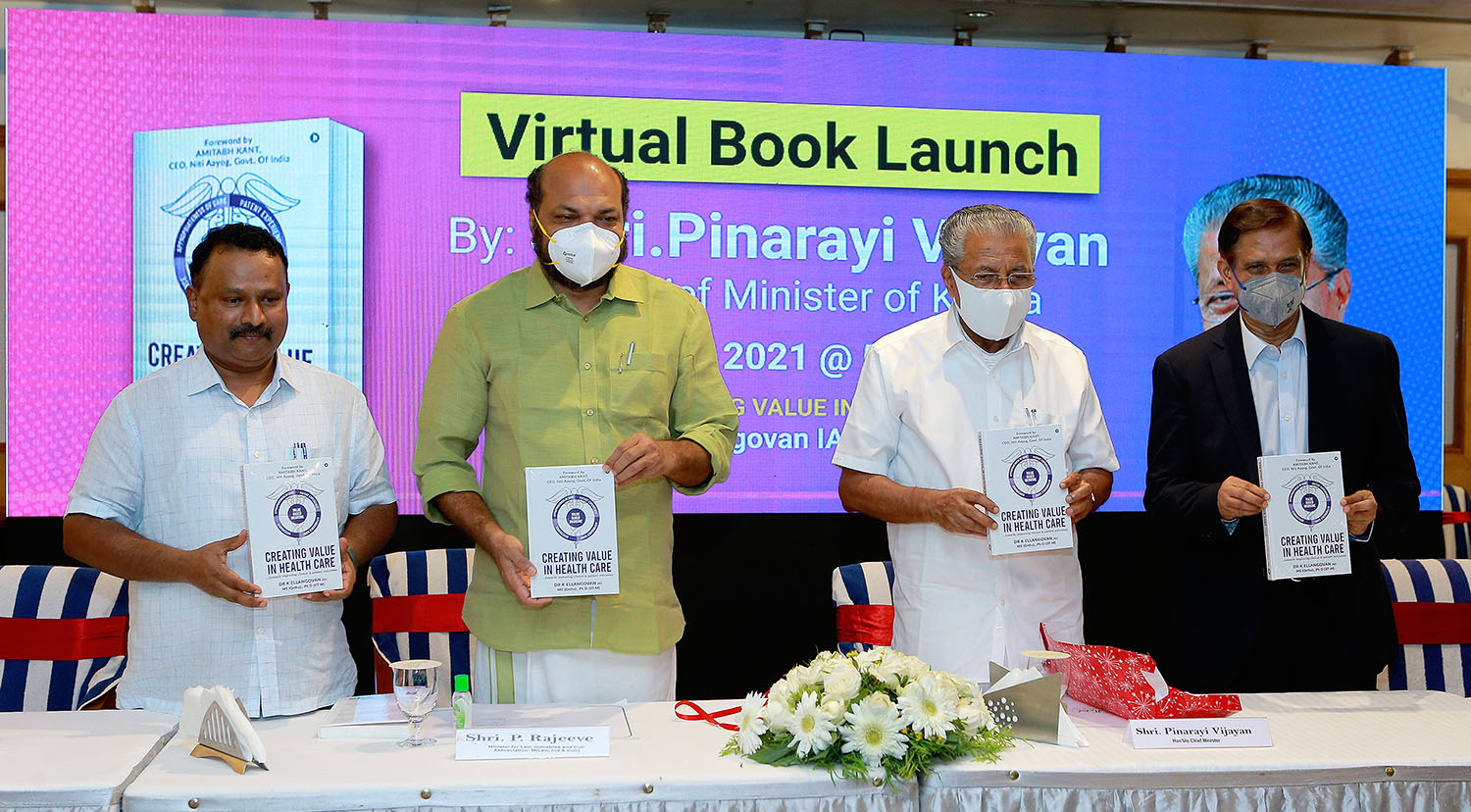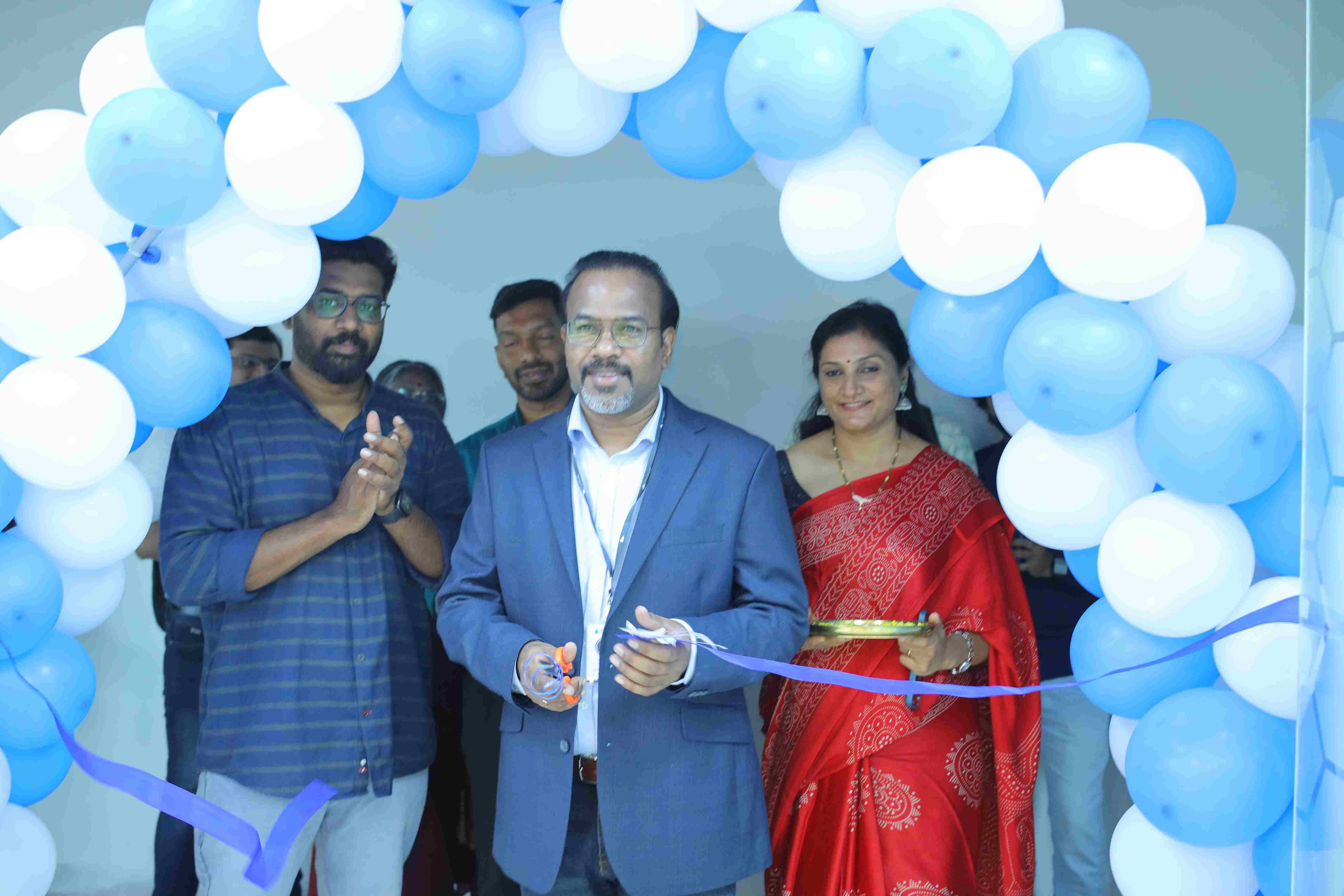Steps to enhance security of hospitals, medical community on anvil: CM
Thiruvananthapuram / August 26, 2021
Voicing concern over the isolated incidents of attacks on the doctors and paramedical personnel while performing duties, Chief Minister Shri Pinarayi Vijayan today said some effective measures to step up security of the medical community and hospitals are on the anvil.
Speaking after releasing a book on the policy reforms in the health care sector written by senior bureaucrat Dr K.Ellangovan IAS, the Chief Minister said Government would consider posting ex-service personnel as security staff in both the government and private health establishments.
Dr Ellangovan, Industries and NORKA Principal Secretary and a medical doctor himself, in his book ‘Creating Value in Health Care’ focuses on the policy reforms needed to achieve higher results to the satisfaction of both physicians and patients, at a time when the sustained presence of Covid-19 has deranged economies the world over.
The Chief Minister hailed the research-driven work’s potential to trigger discussions in the wake of demands for a relook at the healthcare system to assess its ability to manage pandemic situations.
Decrying the recent attacks on hospitals in the state and highlighting the need for timely interventions to check such instances, the Chief Minister called for “proper” security in healthcare establishments.
“Proper security measures need to be installed in both government and private hospitals. Ex-Servicemen can be accorded priority for security postings in hospitals,” he said at the virtual launch function. “Hospitals should have CCTV facilities, where the audio-visuals can be promptly passed on to the nearest police aid post.”
Shri Vijayan said Kerala’s hospitals seldom witnessed the kind of “horrific” scenes unlike several other states did owing to inadequate infrastructure for Covid-19 treatment.
Noting that Dr Ellangovan’s book emphasises on knowledge-gathering, he pointed out its pooling in wisdom from experts across the world makes ‘Creating Value in Health Care’ an ideal case of give-and-take.
Minister for Law, Industries and Coir Shri P. Rajeeve saidDr Ellangovan’s book offers a global perspective about healthcare, employing modern tools of research. “Its recommendations will be of use for health workers and the public at large,” he added.
Public Health Foundation of India President Prof K. Srinath Reddy, while introducing the book, said Dr Ellangovan goes for a panoramic portrayal of the challenges in the structural performance of India’s healthcare. With wise recommendations stemming from incisive analysis, the publication considers issues beyond Covid-19 by throwing light on overall national healthcare.
KIMS Healthcare CMD Dr M.I. Sahadullah, in his a felicitation speech, said the book calls for inculcating the culture of quality healthcare coupled with patient safety and ethics. “More doctors are coming into healthcare management. That is a good sign.”
Dr Ellangovan, who is a qualified medical doctor (Master of Surgery in Orthopaedics), said the book makes pioneering contributions by charting a performance-enabling framework for hospitals, performance polygon and value matrix.
“The healthcare industry needs to adapt newer technology to make diagnosis easier,” he noted in his welcome address. “Even so, patient outcome will remain an area of concern unless the patient is made a partner in decision-making. Reluctance to do so will virtually neutralize the advances made in technology.”
Dr Ellangovan, who also holds an MA in Population Studies, is a PhD from IIT Madras for his research on ‘Performance Dimensions in Public Hospitals’.He has served as Kerala Mission Director of National Health Mission (NHM) and Secretary to Government in the state’s Department of Health & Family Welfare. The Rs-600 book, which is on sale through Notion Press and Amazon, has its foreword by NITI Aayog CEO Shri Amitabh Kant.
Dr Ellangovan pointed out that Covid-19 led countries across the globe to suffer owing to a mismatch of their healthcare capacity and overwhelming turnout of patients. “Human resources worked overtime, almost to the stage of collapse. The supply chain broke down exposing serious glitches in the industry-hospital supply lines. We have learnt lessons, bitter ones,” he added.
The author said if suspicion creeps into the doctor-patient relationship, it is primarily due to “huge asymmetry of information” between them. “Hospitals and doctors are increasingly facing compensation suits and criminal cases, alleging medical errors,” he pointed out. “These cases are tried like any other legal suits and are dragged for years together. This has altered the doctor-patient equation, leading to a drastic change in the way treatment is administered in many hospitals. Doctors resort to what is commonly called a ‘defensive practice’, often ordering unnecessary investigations which ultimately inflate hospital bills.”
Of late, the concept of evidence-based medicine is being increasingly replaced by what ‘value-based medicine’, Dr Ellangovan noted. “It is essentially about the value created to the patients in the course of the treatment process, encompassing appropriateness of care, patient experience and the cost incurred for that experience. Thus, value-based medicine reflects both the physicians’ standpoint and the patients’ perspectives. The need to embrace this approach has become a necessity as part of achieving patient’s endorsement, an element that brings in a fair degree of accountability to the system.”
Inappropriate use of antibiotics and the tendency to use newer branded molecules drive the cost of medicines upwards, Dr Ellangovan said. “Unregulated pricing structure in private hospitals has been a huge barrier for accessing services by the poor. Quality in healthcare assumes a fair degree of subjectivity and has been a topic that has dominated discussions and debates across the world,” he recalled.
Photo Gallery


